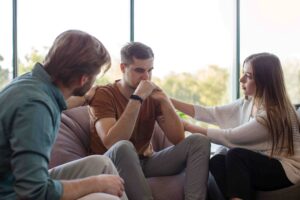Despite our best efforts, despite the court cases and the public outcry, it seems that the plebiscite on gay marriage will continue as scheduled. Instead of stepping up to the plate and doing their sworn duty as elected officials, the administration, led by warring factions of the Liberal Party have decided on a $122 million dollar solution nobody, least of all the LGBTI community wants; a national mail-in vote.
Mounting Criticisms
The unprecedented decision to leave a highly personal, human rights issue in the hands of the general public, through a non-binding, non-compulsory vote is disconcerting to say the least. Many Australians have spoken out regarding the inaccurate and unscientific nature of the survey. Noting amongst other deficiencies, the enormous expense being undertaken, the shoddy oversight provided, and the outdated mail-in-system being used, which threatens to exclude a large portion of younger voters unfamiliar with postal procedure.
However, one aspect being overlooked by many critics outside of the gay community is the mental and emotional turmoil such an ugly debate will cause amongst LGBT individuals.
Echoes of Ireland
While this survey has no historical precedent within Australia, a similar vote was held in Ireland back in 2015. Although in that case, votes were cast as part of a legally binding referendum.
In a study conducted by Australia’s University of Queensland and Victoria University, 1657 Irish LGBTI individuals were surveyed regarding the psychological impact of the referendum. Nearly ¾ of those asked agreed that the “No” campaign had created highly adverse effect on the lives of LBTI adults, families and especially on highly vulnerable teenagers.
Despite the eventual success of the vote in favor of gay marriage, many respondents said that the advertising put out by opponents of marriage equality, which included images of straight couples as ideal and respectable, caused considerable distress. Only 23 percent of respondents expressed an interest in going through the difficult ordeal again.
Dangerous and Divisive
Now in Australia we face a similar public debate that’s even more controversial in nature. Already you have public figures like Liberal MP Chris Miles approving pamphlet campaigns proclaiming how children of same-sex marriage are more likely to become unemployed or drug addicted. Meanwhile former MP has taken the lead in arguing against marriage equality, deriding a “yes” vote as a vote against freedom of speech and religion.
Brining outright prejudice and discrimination into the public eye as something to be supported is clearly harmful to the mental and physical health of LGBTI individuals. Most medical, and psychological and bodies have issued statements in favor of marriage equality for this very reason. At greatest risk are younger members of the LGBTIQ community, many of these teens and young adults are already subject to bullying, and physical abuse, and this sort of divisive public rhetoric only drives home those messages.
ReachOut, an online mental health service aimed at young Australians and their parents has reported a 19 percent increase in visitors over the past couple of months, as teenagers express growing anxiety, and reach out for help and advice. Other gay health sites have reported a similar uptick in visitors as vulnerable gay men and women look for answers.
It is clear that no matter which way public opinion tilts, the scars left by this controversial vote will be felt by the gay community for years to come. Let’s just hope that the wounds are worth it.

